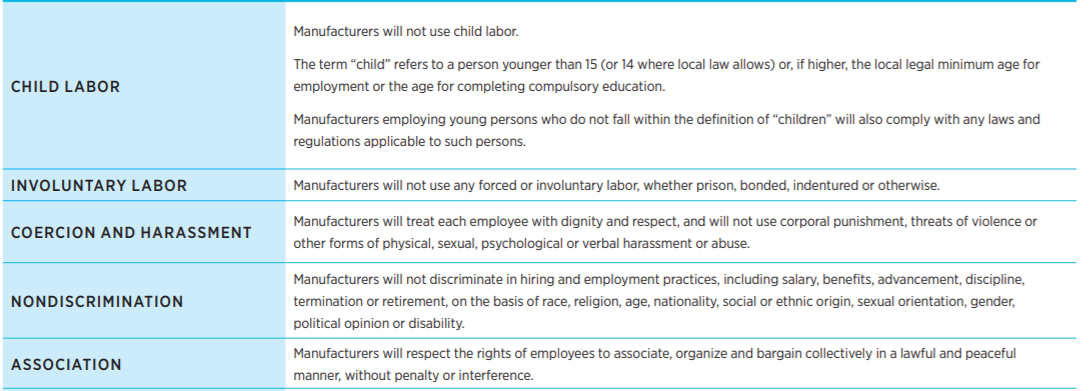Supplier Responsibility
Since its establishment, Disney has been one of the world’s best-known entertainment companies. Its supplier responsibility policy emphasizes labor-related practices, with the focus on “respecting human rights, monitoring the safety and integrity of products, and reducing the environmental footprint” (“Responsible supply chain,” n.d., para. 1). Apart from having strict standards for labor practices and workplace safety requirements, Disney focuses on implementing diverse suppliers into its supply chain, for example, businesses owned by minorities, LGBTQ, veterans, or other communities. Moreover, to support its suppliers and Disney’s standards, the company provides training to its partners on leadership and other aspects of management.
Disney cooperates with a large number of suppliers in over one hundred countries, and to ensure that each adheres to its ethical standards, Disney developed several programs. Disney’s SCC promotes ethical business practices by focusing on basic human rights and safety because the company ensures that its suppliers create work environments that are both safe and designed adhering to human rights regulations. In terms of society’s social responsibility, Disney aims to create responsible sourcing programs that allow choosing partners that help Disney achieve its environmental goals. The company developed Supplier Sustainability standards, which are used to evaluate product lifecycles and ensure that the manufacturing process does not harm the environment.
Elements of SCC
Disney uses the International Labor Standards (ILS) program to evaluate the work conditions of its suppliers, which manufacture Disney-branded items. The program was developed because Disney acts as a licensor, meaning that the majority of products under its brand our manufactured by outside suppliers. ILS aims to help Disney control the licensees and audit their approaches to managing workplaces.
Disney uses its ILC program to establish the standards for managing employee health and safety, and ILC audits to ensure that manufacturers use fair practices. Mainly, Disney requires all facilities to provide access to water and sanitary facilities and requires all suppliers to adhere to the local health and safety regulations. Accountability is enabled through the ILC audits. Additionally, the companies must adhere to all environment-related standards set in their state. Most notably, the Code enables Disney or its authorized partners to monitor the suppliers and evaluate their compliance with these standards.
Key Changes in the Code of Conduct

Since last year, Disney’s Code of Conduct did not change. Currently, Disney uses the Supplier Code of Conduct implemented in 2019. Hence no changes for 2020 were made (The Walt Disney Company, 2019). The figure in the slide illustrates some of the key features of Disney’s Code of Conduct form 2019, which include standards for labor. Notably, although Disney did not update its conduct code for 2020, the company carried out audits of the suppliers using the ILS Program to ensure compliance.
Socially Responsible Organization
Disney can operate as a socially responsible organization because it demonstrates a commitment to ensuring that its suppliers adhere to all legal regulations regarding work safety, labor standards, and environmental safety. In addition, the company conducts audits to evaluate whether the practices used by the suppliers correspond with Disney’s standards to further support its social responsibility commitment. As a result, Disney operates as a socially responsible organization because its Code of conduct enables the satisfaction of stakeholder’s needs – employers, customers, and society.
References
Responsible supply chain. (n.d.).
The Walt Disney Company. (2019). International labor standards program manual.